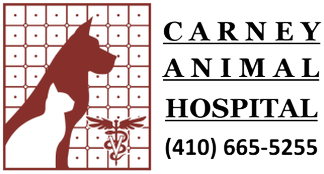We understand that all the information available online about your animals can be overwhelming. Below, our doctors have compiled various educational tools to better explain your pet’s condition and some friendly, helpful safety tips.
Holiday Pet Safety Tips
Festive Food
During the Holiday Season there is always food and drink around. It is very important to keep people food and drink away from pets. The following people foods are especially hazardous to your pet:
Chocolate
This is almost an essential part of the holidays for many, but it is very toxic to dogs and cats. Although toxicity various based on the type of chocolate, size of pet, amount ingested, etc., it is better to be safe than sorry and consider chocolate off limits for all pets.
Baked Goods and Sweets
All of these types of items should be kept out of reach of your pets. They are very often too rich for pets and some may contain artificial sweeteners. One artificial sweetener in particular, Xylitol, has been linked to liver failure and death in dogs. All products made with yeast dough may be particularly harmful. They may cause painful gas and potentially dangerous bloating.
Table Scraps
These items, including gravy and meat fat should be kept away from pets. Many foods that are good for humans are poisonous to pets, including onions, raisins and grapes. Turkey and turkey skin, even in small amounts, can sometimes cause a life threatening condition in pets known as Pancreatitis.
Alcoholic Beverages
Pet owners must be extremely careful with alcoholic beverages around pets. Pets that ingest alcohol can become very sick, fall into a coma, which could lead to an untimely death.
Dangerous Decorations
Decorations are a fun way to celebrate the holidays, but they can also be potentially dangerous to your pet.
Candles
These are festive and attractive to both you and your pet. Never leave a pet alone in an area with lit candles as curious cats (and dogs) may swat at them or knock them over, creating the possibility of a fire.
Electric Lights
The wiring on these items can cause burns if a curious pet were to chew on them.
Ornaments and Tinsel
Tinsel is especially tempting to cats, which tend to eat it. If tinsel is consumed it can potentially cause vomiting, an intestinal obstruction and possible blockage, which may require surgery. Ornaments are also very tempting to both dogs and cats. Ingested broken ornaments can be very sharp, causing injury to the esophagus, stomach, or intestinal tract.
Christmas Trees and Festive Plants
Christmas trees may tip over if your pet climbs on them or tries to play with the lights or ornaments. You may want to consider securing your tree to the ceiling or door frame if you have a particularly curious pet. Also, water additives can be hazardous to your pet. Do not let your pet drink the water, and consider covering the stand to protect pets from drinking it. Amaryllis, mistletoe, balsam, pine, cedar, holly, and poinsettias are among the common holiday plants that can be dangerous and even poisonous to pets, if ingested. Lilies are also popular and can cause kidney failure in cats if eaten.

Hosting Parties And Visitors
Quiet Space
All pets should have access to a comfortable, quiet place if they want to retreat. This space should be somewhere away from commotion that your pet can go to if they want to get away.
Watch the Exits
Inform all guests that you have pets for their protection, as well as the protection of your pets. Make sure you keep an eye on the exits. It is very easy to become distracted when welcoming guests, collecting coats, etc., and give a perfect opportunity for your pet to make a break for the door, with the potential of getting lost. Always be sure your pet is wearing an identification tag and is microchipped. That way if they are able to sneak out, they’re more likely to be returned to you.

Holiday Travel
Leaving the House
Always unplug all decorations and be sure to put the trash out, not allowing access to it while you are away.
Traveling in a Vehicle
Pets should always be safely restrained while driving and never left alone in a vehicle at any time. Be sure to bring some water for them to drink when you make a stop.
Traveling by Air
Always check with your veterinarian first regarding air travel with your pet. Air travel can put some pets at risk and your veterinarian is the best person to advise you about your pet.
